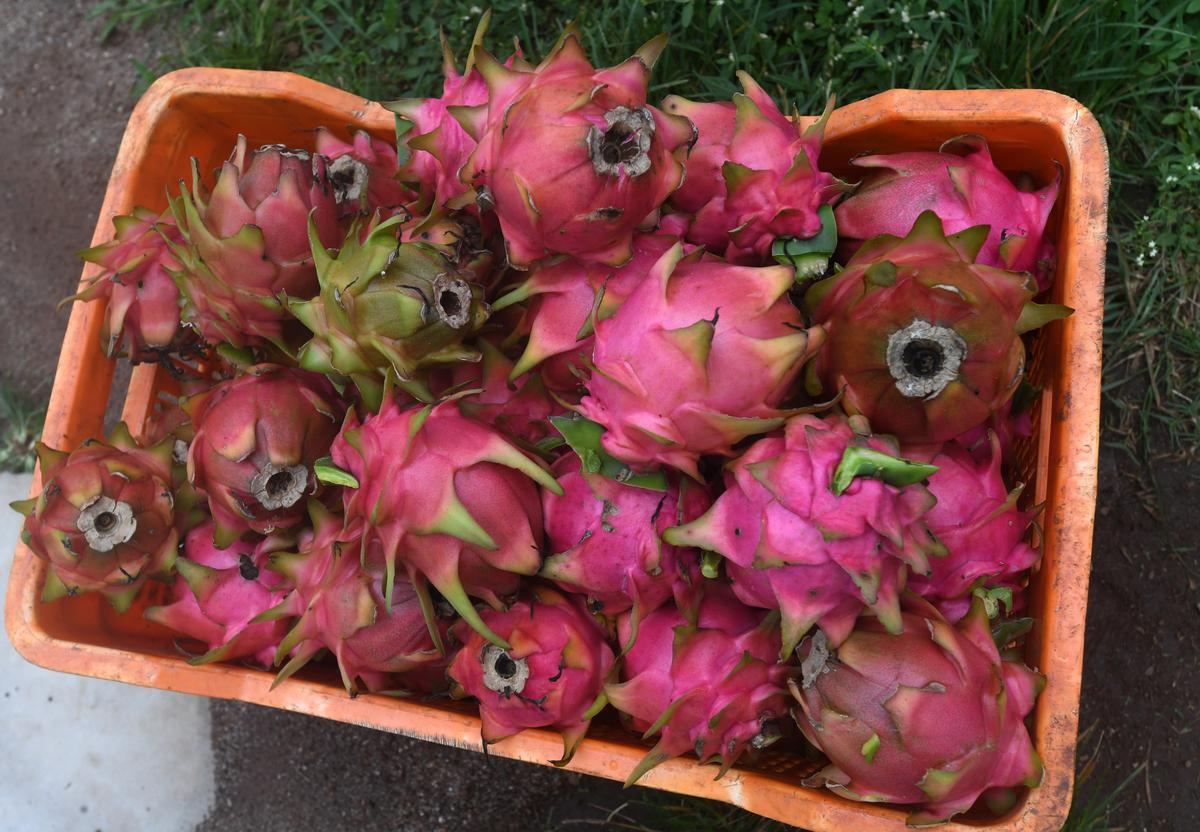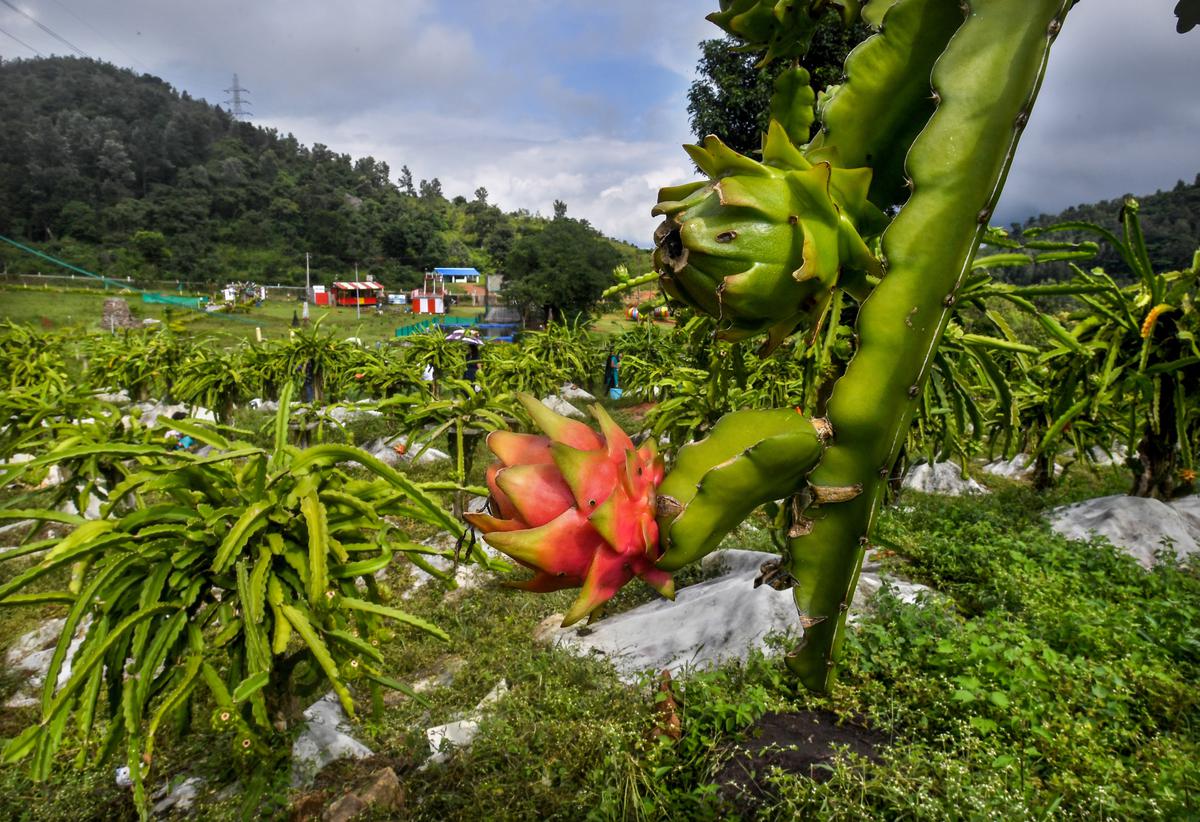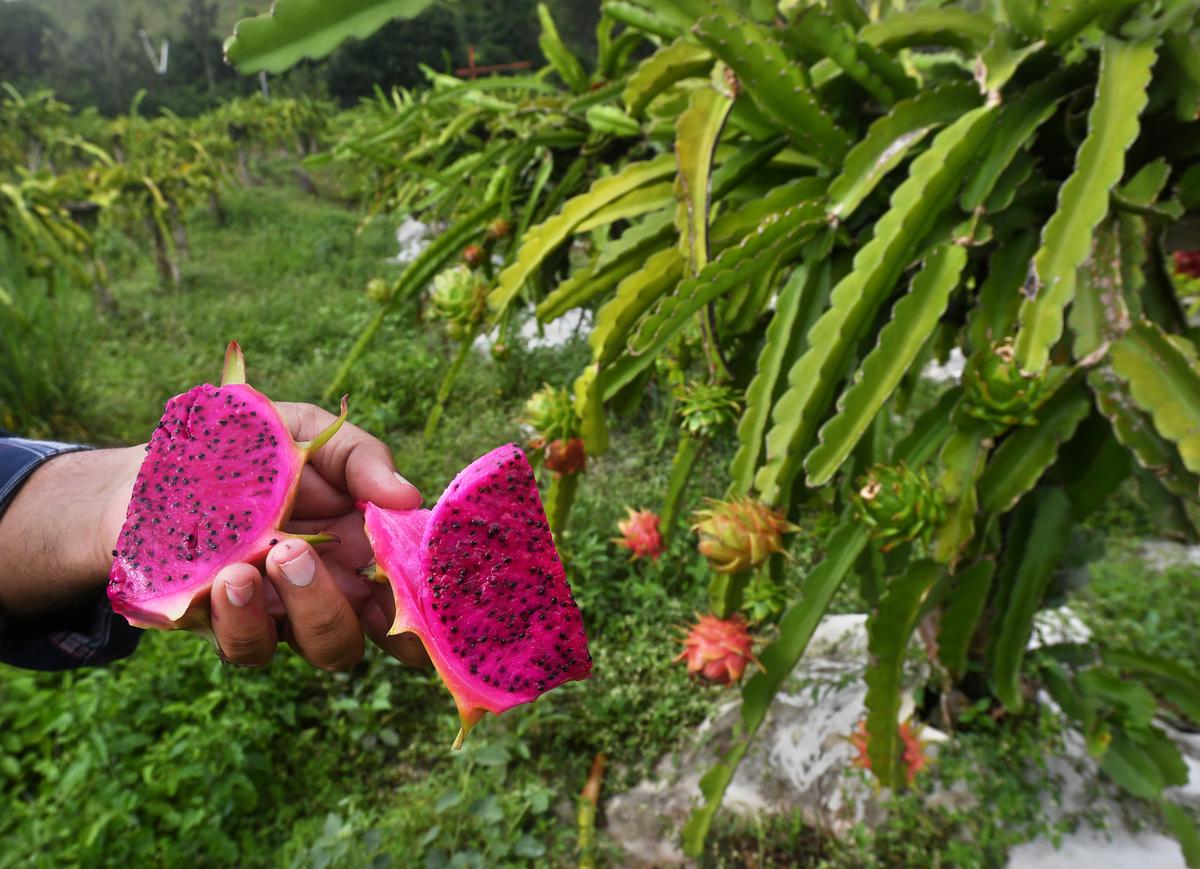A visit to this dragon fruit farm in Anantagiri gives a peek into the ways of cultivating the super fruit and also a slice of adventure
A visit to this dragon fruit farm in Anantagiri gives a peek into the ways of cultivating the super fruit and also a slice of adventure
Nestled amidst misty green hills and valleys of the Eastern Ghats, a small patch of farm in Anantagiri is showing the way towards sustainable methods of growing dragon fruit. Indigenous to Central and South America, dragon fruit was once found only in refrigerated shelves in supermarkets. It was with an aim to bring this fruit to the local markets of Visakhapatnam and make it easily accessible, Jestin Joseph embarked on a journey of growing dragon fruit on a three-acre land in Anantagiri, about 90 kilometres from Visakhapatnam.
An adventure sports and corporate leadership trainer, Jestin had been working in the Anantagiri region for the social welfare of the tribal communities for the past couple of years. “In this part, pepper and coffee are commonly grown. But while I was researching on these, I came to know about dragon fruit, its low input cost and how it has emerged as a super crop in the last few years in India,” says Jestin. He travelled to Solapur and Aurangabad in Maharashtra, which were the hubs of dragon fruit production in India six years ago, and spent time there to understand the techniques and challenges of cultivating the fruit.
A view of the dragon farm at Ananthagiri near Araku 110 km from Visakhapatnam. The farming venture is managed by the tribals of the region and is seeing encouraging yeilds over the last five years
| Photo Credit: K R Deepak
Though Dragon fruit is not a local product of India and grown mainly in Malaysia, Thailand, the Philippines, the United States and Vietnam, production of the fruit began in India in the early 1990s. Its production was limited to home gardens initially but then farmers across various states took up its production increasing the popularity of the fruit. “Dragon fruit cultivation requires less water and can be grown in diverse climatic conditions,” says Jestin.
He started growing the fruit on a two-acre land to begin with and after five years he expanded his cultivation to nine acres, including a farming patch in L Kota in Vizianagaram district. “I reap about four tones of harvest per acre and sell it in the wholesale markets in Visakhapatnam,” he says. Dragon fruit plant is a member of the cacti family. It is a fast-growing, semi-epiphytic vine that requires vertical pole-like support with a ring at the top. The economic lifespan being more than 20 years, it makes dragon fruit an extremely profitable crop for farmers.

Dragon fruits from a farm at Ananthagiri near Araku 110 km from Visakhapatnam. The farming venture is managed by the tribals of the region and is seeing encouraging yeilds over the last five years
| Photo Credit: K R Deepak
However, success came with its share of hurdles and challenges for Jestin. The excess rains and moist weather of Anantagiri were one of the first hurdles that came in the way of the crop production. As a result, he lost over 4,000 plants and made a loss of Rs 2 lakh in the first year itself. To make things more challenging, the crop was infected with a fungal disease called Anthracnose (Colletotrichum gloeosporioides). “The fungus attack spread rapidly and hit the crop in no time,” he adds.
While he battled with many ways to address this issue, including the use of fungicide and pesticides, the solution came in the form of simple blade which addressed the problem. “All I had to do was cut off the infected part and expose the area to the sun to dry,” he says. In less than two years time, he could completely do away with fungicide or pesticide and has been growing the fruit through natural farming methods.

A view of the dragon farm at Ananthagiri near Araku 110 km from Visakhapatnam. The farming venture is managed by the tribals of the region and is seeing encouraging yeilds over the last five years. Photo : K.R. DEEPAK / The Hindu
| Photo Credit: K R Deepak
The peak season for dragon fruit crop is from May to November, which sees four major waves of crop production. Jestin is currently growing two varieties of dragon fruit – Alice White and Malaysian Red. “These two are the most common varieties that have a good demand in the local market. Alice White gives a better yield as compared to the red variety with a yield of about eight tones per acre,” he says. He is currently in the process of creating a nursery for saplings.

A view of the dragon farm at Ananthagiri near Araku 110 km from Visakhapatnam. The farming venture is managed by the tribals of the region and is seeing encouraging yeilds over the last five years.
| Photo Credit: K R Deepak
To make the experience of visiting the farm enjoyable for families, Jestin has created an adventure park with a host of activities. Visitors can zip across the dragon fruit farm field or experience sky cycling at a height of 20 feet from the ground level. Vertical climbing, low rope course, high net area, trampolines and boating for kids are some of the other attractions here. To get the best way to experience the field and the adventure park during the monsoons, plan a stay at the hanging pods in the field.
























